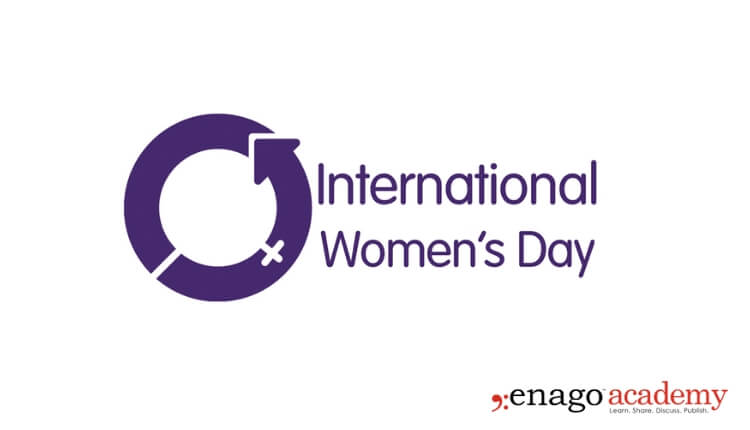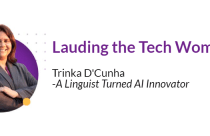#BalanceforBetter: Enago Academy Celebrates International Women’s Day

Women have made significant contributions in the field of STEM over several years. This contribution has gone unnoticed for several years. With increased awareness within the global academic community, we are coming across their efforts in taking academia ahead. This year, the theme for International Women’s Day is #BalanceforBetter, which means we must press for promoting equality within the genders and maintaining the balance for better progress of STEM. To get an unbiased opinion on the same, we reached out to both female and male members from science, research, and publishing. In this article, Enago Academy is highlighting these thoughts and opinions.
Thoughts of a Few Members of Academia
When we treat young children as girls and boys, we assume their gender is their most identifying feature. All too often their first experiences with science and technology are pervaded with antiquated stereotypical gender-based assumptions and expectations of what their interests and capabilities should be. Instead, I suggest we consider children to be people who are free to grow up and lead their lives based on their curiosity and talents. Then, we might just break one of modern society’s worst habits — unnecessarily limiting a child’s imagination of what they can achieve.
Danielle S. Rhen, PhD, Research / Writing & Editing / Consulting
I had the pleasure of working as Secretary-General of the European Association of Taiwan Studies (EATS) from 2012 to 2018. One of the striking characteristics of the recent EATS Board is that it highlights the importance of female scholars in our community. To paraphrase Hillary Clinton, I believe that the achievement of the EATS Board can be considered ‘a celebration of the contributions women make in every aspect of life: in the home, on the job, in the community, as mothers, wives, sisters, daughters, learners, workers, citizens, and leaders’. We should be so proud that EATS has inspired so many fabulous female role models within the circle of European Taiwan studies.
Dr Ming-yeh T. Rawnsley, Secretary-General, European Association of Taiwan Studies, 2012-2018.
For women it is always much more difficult to be scientists and researchers than for the men. Women need special attention. To promote and motivate them to get involved in scientific career depends first, on their own will to dive deep into science and second, on the joint efforts of the whole society to create for them conditions for work that comply with the specificity to be a woman. Of course, last but not least to promote women to take career in science depends also on the veracious communication of science and the beauty of this to be a scientist by renowned, recognized and highly honoured female role models in science. Sharing personal experience and engaging women in discussions for improving the conditions for work in academies and universities is prerequisite for their engagement in STEM education and later on in science and research.
Milena Georgieva, PhD, Assoc. Prof., Bulgarian Academy of Sciences
Biomedical research benefits from the perspectives of women because, on average, their experiences of the world are different from those of men. The NIH recognizes that multiple domains of influence at multiple levels influence the risk of developing disease, prognosis, and treatment outcomes. An individual’s biological background interacts with behavioral, cultural, architectural, and healthcare-related factors to influence health and disease, some of which may be more readily identified and appreciated by women.
Angela Ogden Bellos, PhD, Research / Writing
To get more women into STEM careers, a great partnership among educational institutions, government, organizations, industry and parents should be done. Role models and school teachers are important stones in a girl’s life. Hosting open days for STEM will also attract young people and parents to give opportunities to go behind the scenes to see what it’s like to be a STEM person. Definitely, STEM education and careers should start at an early age.
Tugba ONAL OKYAY, Ph.D., Assistant Professor, Usak University
I think that it is vitally important for science to have as wide a range of views and perspectives as possible, and one of the best ways to achieve this is to ensure that women are equally represented in all fields of science and, crucially, at all levels. As a biology educator as well as an editor, I am keen to ensure that all of my students, both boys and girls, are fully aware that science is a profession that is open to anyone, should they choose to pursue it as career.
Adam Bodley, Academic Editor
Balance for Better: A Call to Action
Gender inequality in academia has made it to the headlines. Hence the theme taken up for this year’s International Women’s Day is very apt. The theme can be further explained as: “Think equal, build smart, innovate for change”. Balance is very important for any community to survive. This is more important for the research community as it is responsible, directly or indirectly, for the global progress of the countries. Balance helps drive a better working world. The balance has to be maintained not only in STEM, but also in boardrooms, governments, and all the spheres around. Only then shall we be able to strive for a better future.
We would love to hear your thoughts and opinions on the achievements of women in STEM. Tweet us using the hashtags #BalanceforBetter #WomeninSTEM









